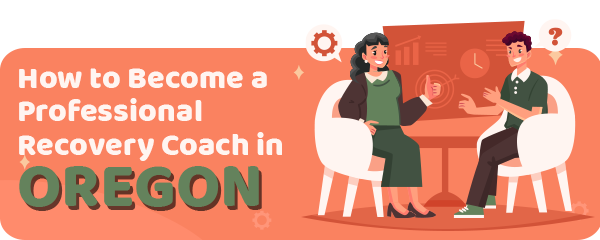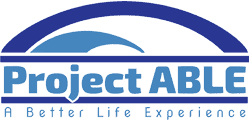Recovery coaches hold a crucial and irreplaceable position in providing vital non-clinical support to individuals committed to overcoming addiction and achieving long-term recovery.
In Oregon, the role of a recovery coach revolves around offering guidance and assistance to individuals undergoing addiction treatment, guiding them along their unique path toward recovery.
This article aims to explore the field of recovery coaching in Oregon.
Article Table of Contents
Job Description of a Professional Recovery Coach in Oregon
It is important to distinguish the role of recovery coaches from therapists, as recovery coaches do not engage in diagnosing or providing treatment to individuals.
The primary focus of a recovery coach is to provide unwavering support and guidance, assisting clients in their pursuit of lasting recovery.
Recovery coaches are equipped to work with individuals grappling with various forms of addiction, offering personalized assistance tailored to their specific needs.
Key responsibilities of a recovery coach include:
- Educating clients on essential life skills, such as cultivating a healthy and balanced lifestyle through activities like cooking and cleaning.
- Collaborating with clients to establish realistic goals and develop actionable plans to achieve them.
- Conducting regular safety and wellness checks to ensure clients’ overall well-being throughout their recovery journey.
- Monitoring clients’ progress and holding them accountable for their actions and commitments.
- Facilitating access to additional recovery resources, including support groups, counseling services, or vocational training, based on individual needs.
- Upholding client confidentiality and adhering to HIPAA guidelines to maintain privacy and build trust.
- Engaging with clients and their families to provide comprehensive support and address any challenges or concerns that may arise.
Steps to Become a Professional Recovery Coach in Oregon
If you aspire to pursue a career as a recovery coach in Oregon, below are the steps you can follow.
1. Obtain a High School Diploma or GED
To embark on a career as a recovery coach, having a high school diploma or a General Education Development (GED) certificate is essential.
2. Gain Practical Experience
Practical experience plays a crucial role in developing the necessary skills for the role of a recovery coach.
Consider volunteering at recovery centers or organizations dedicated to addiction recovery in your local area to gain hands-on experience.
3. Get certified
Becoming a certified Peer Support Specialist (PSS) or Peer Wellness Specialist (PWS) in Oregon is a rewarding journey that involves meeting specific requirements and undergoing comprehensive training.
These certifications enable individuals to provide invaluable support to others within the recovery community.
Requirements for Certification:
- Age Requirement:
- Applicants must be at least 18 years old to be eligible for certification as a PSS or PWS in Oregon.
- Education:
- A high school diploma or General Education Development (GED) certificate is required to meet the educational prerequisite for certification.
- Lived Experience:
- Applicants must be current or former consumers of mental health and recovery services or be a family member of someone who has received these services.
- Sobriety or Recovery:
- For individuals recovering from addiction disorders, a minimum of two years of sustained sobriety from alcohol or other substances is necessary to qualify for certification.
- Problem Gambling Recovery:
- Applicants seeking certification as PWS must be in recovery from problem gambling, demonstrating their personal journey of overcoming this challenge.
- Criminal Background Check:
- The completion of a criminal background test is required to ensure the safety of those receiving support.
4. Stay Informed and Engaged
To excel in your role as a recovery coach, it is crucial to stay updated on the latest advancements in the field.
Participate in educational initiatives, attend workshops, and engage in continuous learning opportunities to enhance your knowledge and skills.
Getting Trained As a Professional Recovery Coach in Oregon
Peer support specialists are required to complete a 40-hour training program, while peer wellness specialists must undergo an 80-hour program.
Both programs align with the standards set by the Oregon Health Authority.
Students must also complete authority-approved oral health training.
Look no further if you search for some schools where specific training for this occupation is offered.
Central Oregon Community College 
This college offers a program that is approved by the entity providing certification in the state.
It offers a training course that lasts for 40 hours and covers everything you need to know to become a recovery coach.
Project ABLE 
This institution provides a program that costs $550 and is located in Salem, Oregon.
You will learn more about topics such as peer support, recovery, and ethics.
Students will also take practical classes where they can get some hands-on experience.
| School Name | Address |
|---|---|
| Central Oregon Community College | 2600 NW College Way, Bend, OR 97703 |
| Project ABLE | 1599 State St, Salem, OR 97301 |
Salary Outlook for Professional Recovery Coaches in Oregon
As you embark on a career path as a recovery coach, it is crucial to know the projected annual earnings, which are influenced by various factors.
Regardless, a professional recovery coach in Oregon earns on average $34,522 per year.
The factors shaping income potential are highlighted below.
Years of Experience
One of the key determinants of income potential for recovery coaches in Oregon is the number of years of experience in the field.
As recovery coaches accumulate more experience, their expertise and reputation grow.
Geographic Location
The specific geographic location within Oregon can impact your income potential.
Metropolitan areas with higher demand for recovery services offer more competitive salaries, while rural areas may present different financial considerations.
To provide you with a detailed overview of income potential, we have compiled a comprehensive table below.
Annual Salary Range:| Location | Avg. Annual Salary |
|---|---|
| Portland | $35,773 |
| Beaverton | $35,773 |
| Lake Oswego | $35,773 |
| Hillsboro | $35,727 |
| Clackamas | $35,727 |
| Gresham | $35,658 |
| Oregon City | $35,635 |
| Arlington | $35,475 |
| Salem | $33,914 |
| Independence | $33,892 |
Regional Salary in Oregon
| Region | Employed | Avg. Annual Salary | Avg. Hourly Pay | Top 10% Annual Salary | Bottom 10% Annual Salary |
|---|---|---|---|---|---|
| Albany, OR | 30 | $71,660 | $34.45 | $100,180 | $48,360 |
| Eugene, OR | 40 | $79,980 | $38.45 | $101,580 | $49,870 |
| Portland-Vancouver-Hillsboro, OR-WA | 420 | $88,880 | $42.73 | $118,830 | $58,730 |
| Salem, OR | 50 | $67,600 | $32.5 | $99,000 | $41,150 |
* Employment conditions in your area may vary.
Frequently Asked Questions
Where do professional recovery coaches work in Oregon?
Professional recovery coaches work in facilities such as:
- Community Psychiatric Support and Treatment clinics
- Psychosocial Rehabilitation clinics
- Crisis Intervention
- Assertive Community Treatment
- Addiction Services
Are professional recovery coaches similar to healthcare professionals?
Recovery coaches do not engage in diagnosing or treating individuals, as their role differs from that of therapists or healthcare professionals.
What skills do professional recovery coaches in Oregon need?
Professional recovery coaches in Oregon need skills such as:
- Very strong interpersonal skills
- Empathy
- Very strong communication skills
- Organization skills
- Commitment
Read the full guide: How to Become a Professional Recovery Coach


